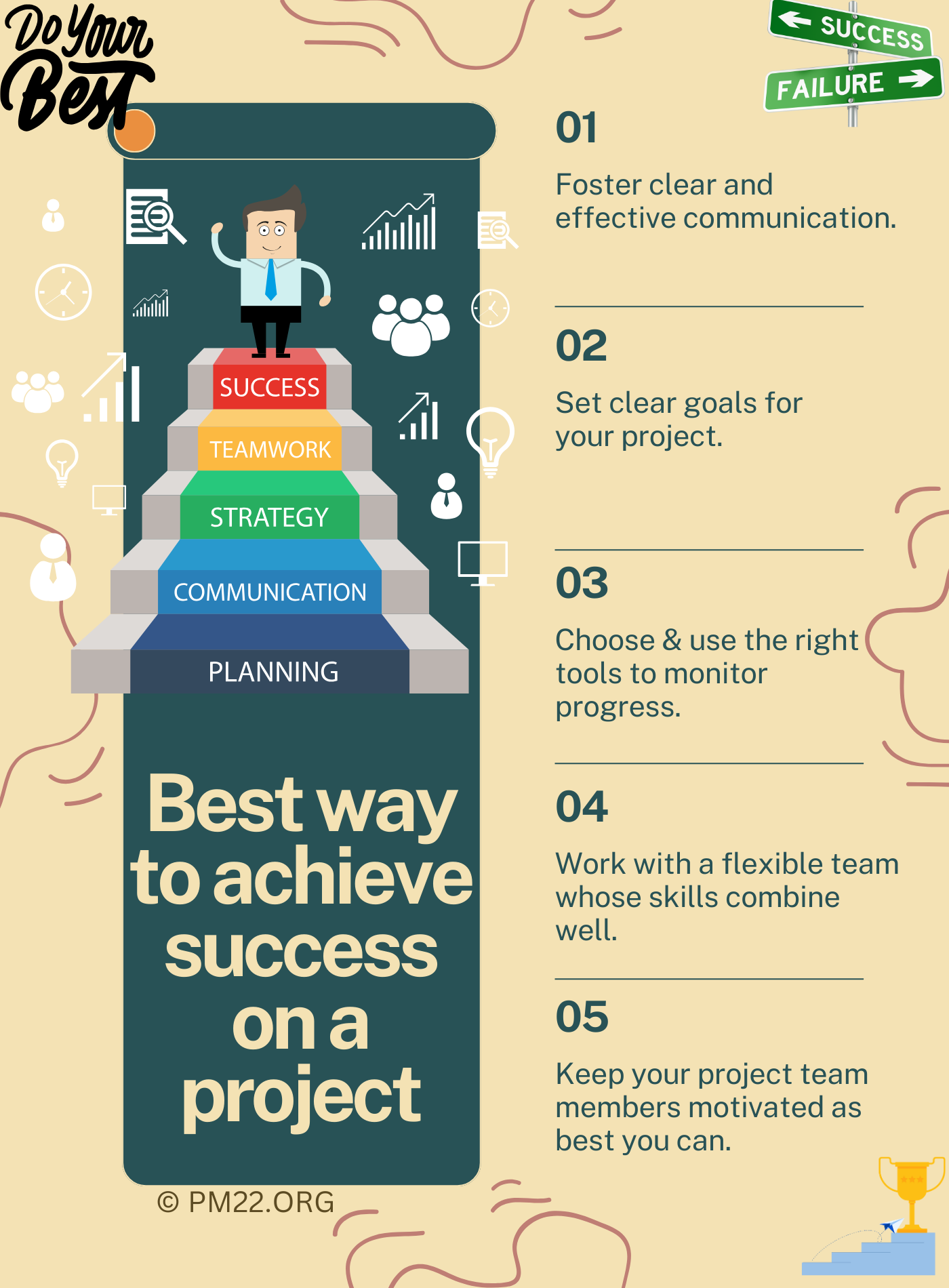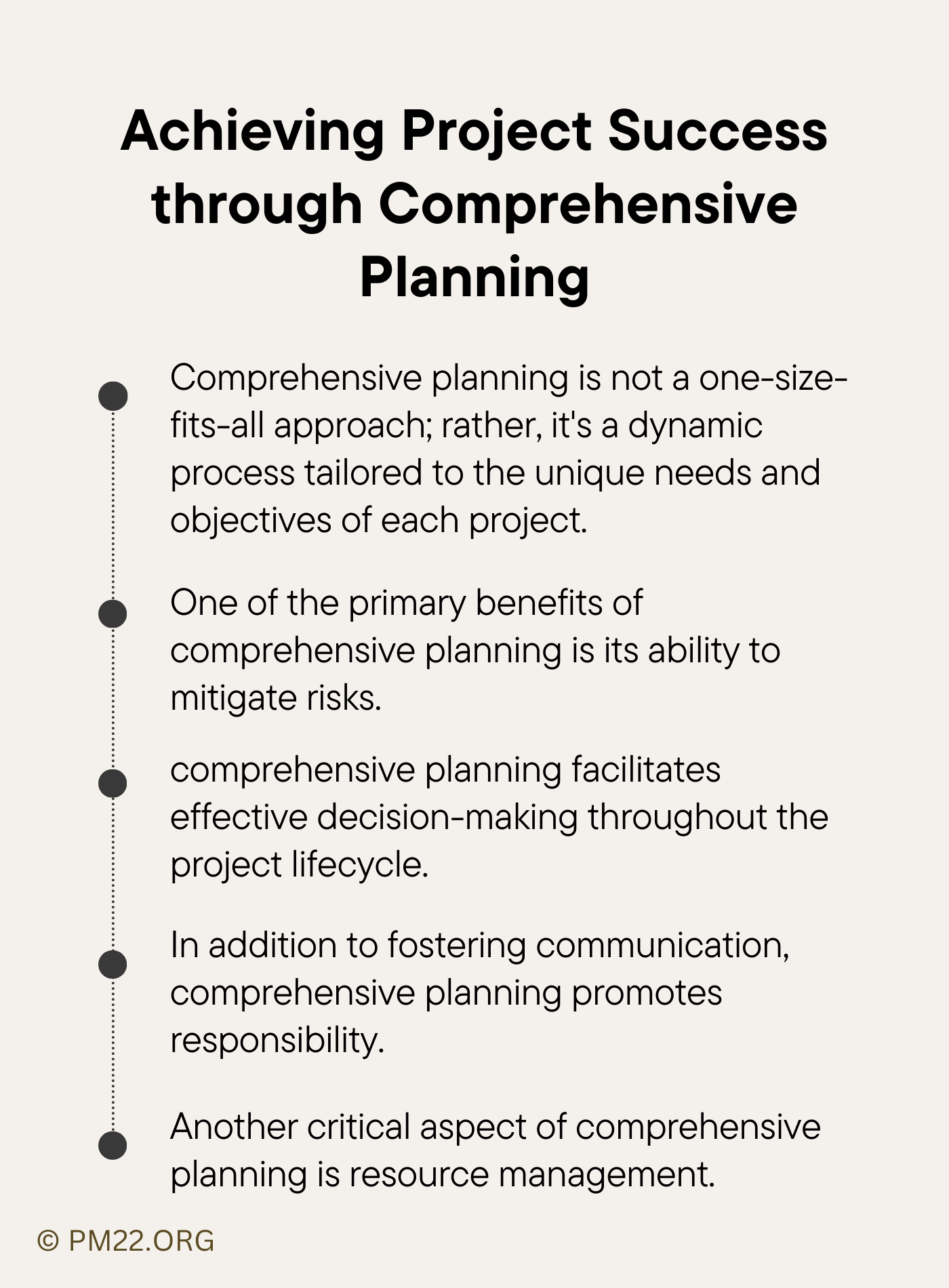 In the realm of project management, success isn’t merely a stroke of luck or a random occurrence. It’s the result of meticulous planning, diligent execution, and agile adaptation. At the heart of this triumvirate lies comprehensive planning, the cornerstone upon which successful projects are built. In this article, we delve into the intricacies of achieving project success through the lens of comprehensive planning.
In the realm of project management, success isn’t merely a stroke of luck or a random occurrence. It’s the result of meticulous planning, diligent execution, and agile adaptation. At the heart of this triumvirate lies comprehensive planning, the cornerstone upon which successful projects are built. In this article, we delve into the intricacies of achieving project success through the lens of comprehensive planning.
Comprehensive planning is not a one-size-fits-all approach; rather, it’s a dynamic process tailored to the unique needs and objectives of each project. It begins with a clear understanding of the project’s scope, objectives, stakeholders, and constraints. This foundational phase lays the groundwork for all subsequent planning activities, guiding decision-making and resource allocation throughout the project lifecycle.
One of the primary benefits of comprehensive planning is its ability to mitigate risks. By conducting thorough risk assessments early in the planning phase, project managers can identify potential obstacles and develop contingency plans to address them proactively. Whether it’s budget overruns, resource constraints, or unforeseen external factors, a comprehensive plan provides a roadmap for navigating uncertainties and minimizing their impact on project outcomes.
CLICK HERE TO DOWNLOAD 300+ PROJECT MANAGEMENT TEMPLATES & DOCUMENTS IN EXCEL
Moreover, comprehensive planning fosters collaboration and alignment among project stakeholders. By involving key stakeholders from the outset and soliciting their input throughout the planning process, project managers can ensure that the project’s objectives are clearly defined and understood by all parties involved. This alignment not only enhances communication and teamwork but also fosters a sense of ownership and accountability among stakeholders, driving collective commitment to project success.
Another critical aspect of comprehensive planning is resource management. By systematically identifying and allocating resources—whether it’s human, financial, or material—project managers can optimize resource utilization and avoid bottlenecks or shortages that could derail the project timeline. Moreover, comprehensive planning enables realistic scheduling, allowing project managers to set achievable milestones and deadlines based on resource availability and project dependencies.
Furthermore, comprehensive planning facilitates effective decision-making throughout the project lifecycle. By establishing clear governance structures, decision-making protocols, and escalation pathways, project managers can streamline the decision-making process, empower team members to make informed decisions, and resolve issues promptly. This agility and responsiveness are essential for navigating unforeseen challenges and adapting to changing circumstances without compromising project objectives or quality standards.
CLICK HERE TO DOWNLOAD 300+ PROJECT MANAGEMENT TEMPLATES & DOCUMENTS IN EXCEL
In addition to its tactical benefits, comprehensive planning also promotes strategic alignment and long-term success. By aligning project goals with broader organizational objectives and strategic priorities, project managers can ensure that their efforts contribute meaningfully to the organization’s mission and vision. Moreover, comprehensive planning facilitates post-project evaluation and learning, enabling project teams to identify lessons learned best practices, and areas for improvement that can inform future projects and enhance organizational capabilities.
In conclusion, achieving project success requires more than just luck or wishful thinking—it demands careful planning, meticulous execution, and unwavering commitment. Comprehensive planning serves as the bedrock of successful projects, providing a structured framework for identifying objectives, managing risks, allocating resources, and making informed decisions. By embracing comprehensive planning as a guiding principle, project managers can enhance their ability to deliver projects on time, within budget, and to the satisfaction of stakeholders, thereby cementing their reputation as effective stewards of organizational success.
